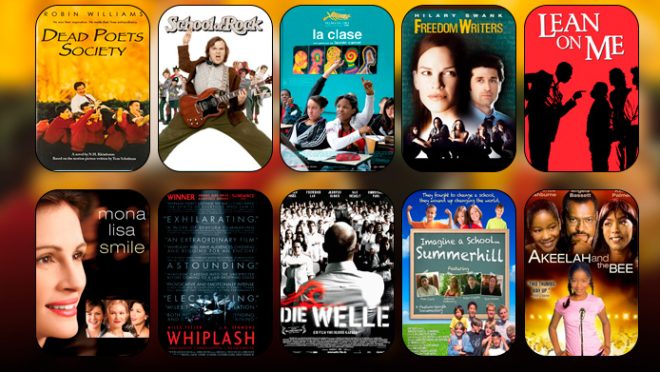Rethinking education; 10 English movies that echo Bangladesh’s reform call
Rethinking education; 10 English movies that echo Bangladesh’s reform call

Bangladesh’s education sector is facing significant unrest following a series of incidents that have ignited student protests across the country. The recent separation of seven colleges from Dhaka University, violent clashes during movements calling for education reforms, and ongoing protests at Titumir College have all shed light on growing frustrations. These events are not just isolated incidents, they are symptoms of deeper systemic issues within the education system, which many argue has failed to adequately address the needs of students for years. Critics point to outdated policies, a lack of institutional reform under the previous government, and a top-down structure that has ignored the voices of students.
As the education system in Bangladesh is going through transitions with an interim government, the demand for meaningful education reform has reached a tipping point. While the government has signaled its intent to address these issues, the path forward remains uncertain.
In this critical moment of change, global cinema offers a compelling lens to examine the flaws in educational systems worldwide. Here’s a list of 10 films that challenge not only traditional teaching methods but also the broader institutional structures that limit student potential. They advocate for creativity, critical thinking, and student empowerment; principles that resonate deeply with the urgent calls for reform in Bangladesh’s educational institutions:
1. Dead Poets Society (1989)
An unconventional English teacher, John Keating, inspires students to embrace independent thinking and challenge the status quo.
In Bangladesh, student protests reflect dissatisfaction with a rigid educational system. Dead Poets Society highlights the need for creative, student-driven learning, which aligns with calls for reform and greater autonomy in the classroom.
2. School of Rock (2003)
A failed musician turns substitute teacher and encourages his students to express themselves through rock music, unlocking their creativity.
As Bangladesh’s education system faces calls for more innovation, School of Rock advocates for fostering students’ individual talents, promoting a learning environment that values creativity over traditional methods.
3. The Class (Entre les murs) (2008)
A teacher struggles to manage a diverse classroom, highlighting the complex relationships between educators and students.
In Bangladesh, the education system often fails to address the diversity of student needs. This film underscores the importance of inclusive teaching practices that recognize individual challenges and foster a more responsive educational environment.
4. Freedom Writers (2007)
A teacher uses writing to inspire students from troubled backgrounds to express themselves and rise above their circumstances.
Bangladesh’s students have expressed frustration with a system that doesn’t meet their diverse needs. Freedom Writers highlights the power of inclusive, student-centered teaching methods, which are essential for reforming Bangladesh’s education system.
5. Lean on Me (1989)
A tough principal restores discipline and academic success at a failing school, showing the importance of leadership in education.
As Bangladesh seeks educational reform, Lean on Me emphasizes the need for strong, transformative leadership that can guide institutions through times of crisis and push for meaningful change.
6. Mona Lisa Smile (2003)
A progressive teacher challenges her students at a conservative women’s college to reconsider their life choices beyond traditional gender roles.
In Bangladesh, gender equality in education remains a concern. Mona Lisa Smile advocates for an education system that empowers all students, regardless of gender, to explore their full potential and break free from societal constraints.
7. Whiplash (2014)
A young drummer faces extreme pressure from his demanding teacher in pursuit of musical excellence, leading to a destructive relationship.
In Bangladesh’s competitive academic environment, students often face intense pressure. Whiplash warns against excessive academic rigor and highlights the need for a balance between excellence and student well-being.
8. The Wave (Die Welle) (2008)
A teacher conducts an experiment to demonstrate how easily authoritarianism can take root in a democratic society, leading to unintended consequences.
As students in Bangladesh call for more participatory education, The Wave stresses the importance of democratic values in schools and the dangers of authoritarian educational structures that stifle student input.
9. Summerhill (2008)
Based on a real-life institution, Summerhill depicts a school where students have the freedom to govern their own education.
Summerhill presents a model of education where students are empowered to direct their learning, a concept that aligns with the growing demand for reform in Bangladesh’s education system, where students seek more autonomy and involvement in decision-making.
10. Akeelah and the Bee (2006)
A young girl from a disadvantaged background, with the help of her teacher, overcomes obstacles to compete in a national spelling bee.
In Bangladesh, socioeconomic disparities remain a barrier to educational equality. Akeelah and the Bee demonstrates the transformative power of education when students are given the opportunity to succeed, regardless of their background.


